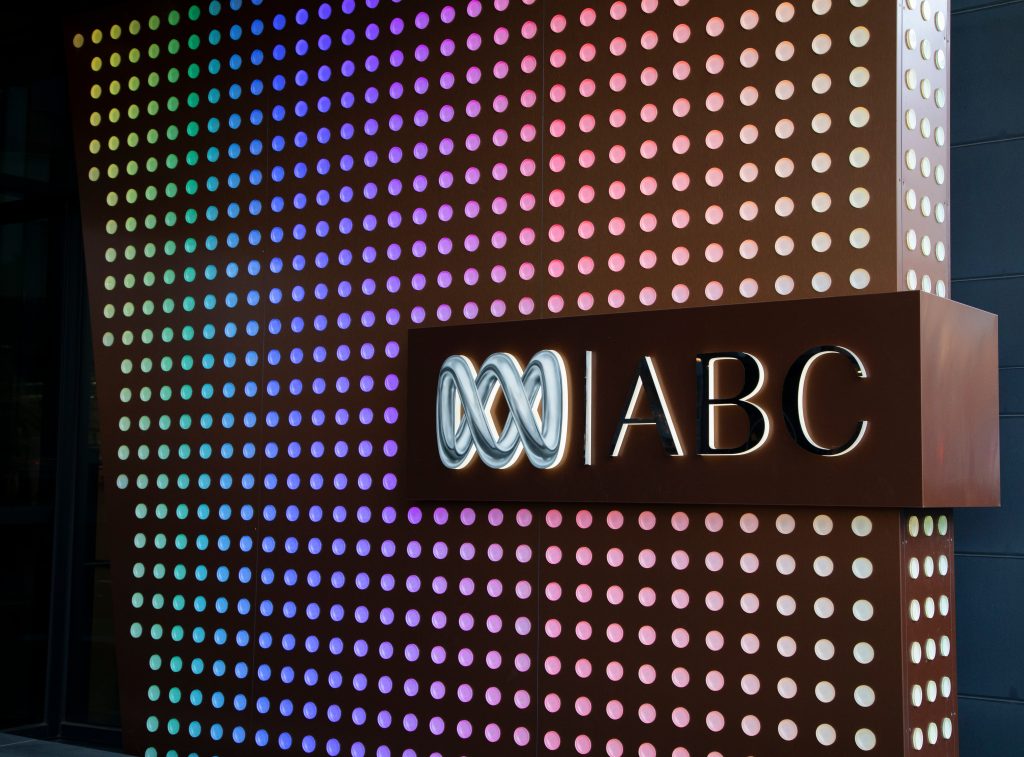MEDIA RELEASES
AIJAC welcomes ABC inquiry outcome, calls for further consideration of external complaints body
May 17, 2022 | AIJAC staff

The Australia/Israel & Jewish Affairs Council (AIJAC) Executive Director Dr. Colin Rubenstein has welcomed an independent report into the ABC complaints handling process that identified significant shortcomings in the current process and recommended major reforms, including the introduction of an Ombudsman within the ABC that will report directly to the ABC Board. However, he also said it was unfortunate that the inquiry failed to propose a “fully external complaints body” that “can address the need for genuine independent oversight of our public broadcaster.”
Dr. Rubenstein said, “We thank the ABC Board for making the appropriate decision to release this independent report commissioned by the ABC into its complaints process before the federal election, and for its promise to implement the report’s recommendations. AIJAC is fully committed to the essential role that a properly funded ABC has to play in providing balanced and impartial news and current affairs in Australia. A properly functioning complaints process is an essential part of that role. Hopefully, our political parties will have enough time to respond to the report before voters cast their ballots over coming days.”
Commending the report’s authors, former Commonwealth Ombudsman Professor John McMillan and veteran media executive Jim Carroll, Dr. Rubenstein said, “this appears to be a warts and all report” and is “an important step forward in kickstarting an honest national conversation on how to best fix a complaints system that has been broken for a very long time. The inquiry clearly received a mountain of written submissions and oral testimonies from a diverse group of individuals and organisations that cannot and have not been ignored.”
Dr. Rubenstein said the report effectively acknowledged that “prospective complainants engaging with the process in good faith are not accorded an acceptable level of procedural fairness.”
Of the key recommendation of the inquiry, an internal ombudsman who would be appointed by and report to the ABC Board, he said, “This and the other recommendations from the inquiry would be a definite improvement over the current highly problematic situation whereby an internal department essentially allows content providers complained about to dominate the decision over whether to uphold or reject a complaint. We are grateful that the ABC Board and the two commissioners have taken the need for significant reforms in complaints handling seriously.”
Dr. Rubenstein noted that the report also addressed other concerns AIJAC has long flagged, such as “the challenge of using the ABC’s antiquated and highly limiting webpage to lodge complaints; the failure of the ABC to consult with complainants once they have lodged a complaint; the ABC’s tendency as an organisation to exhibit a culture of defensiveness which often resists admitting errors and refuses to accept the verdict even when the regulatory umpire, the Australian Communications and Media Authority (ACMA) finds against it; the inability of ACMA as currently constituted to provide consistent and effective external oversight of ABC content; and the failure of the ABC to publicise successful complaints in an adequately transparent manner.”
However, Dr. Rubenstein also cautioned that, while the report’s findings were a highly positive first step, they would not ameliorate some key concerns about ABC complaints handling.
“Despite the numerous positive aspects of the inquiry’s finding, AIJAC continues to believe that only a fully external complaints body can truly address the need for genuine independent oversight of our public broadcasters, and provide assured procedural fairness to complainants,” he said.
“Indeed, this is the model that seems to successfully apply in numerous European democracies such as France, Norway, Denmark, the Netherlands and Switzerland. The inquiry report itself suggests ACMA cannot currently fulfil this independent oversight role effectively. Given that this ABC inquiry has been completed, a properly resourced external review body should still be considered in the appropriate policy-making forums,” Dr. Rubenstein concluded.
Tags: ABC, Australia, Media, Media/ Academia, public broadcasting





